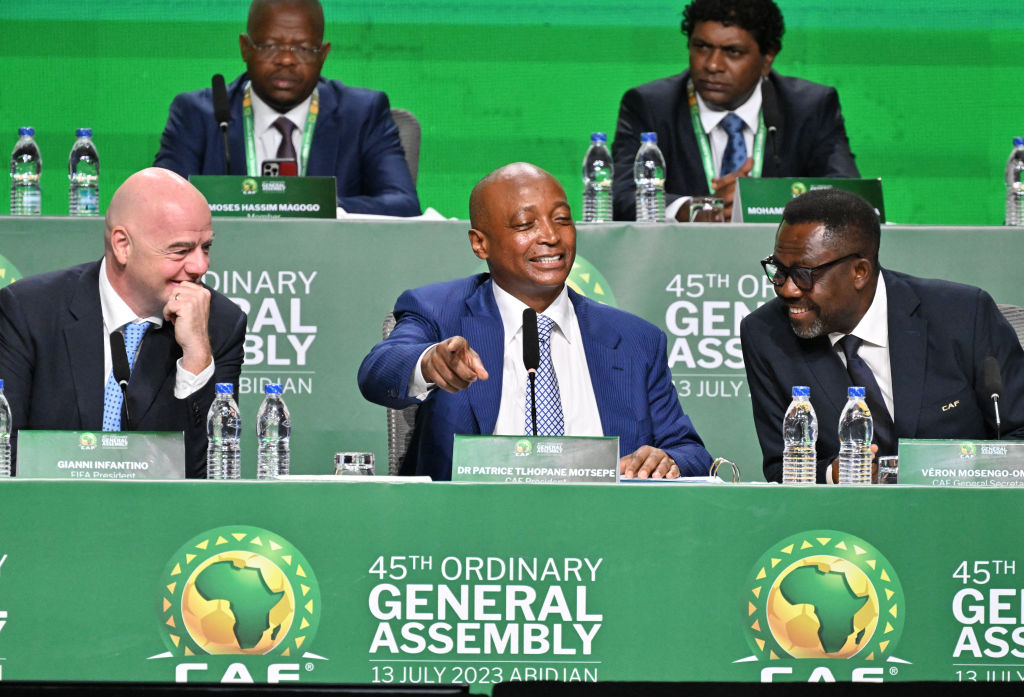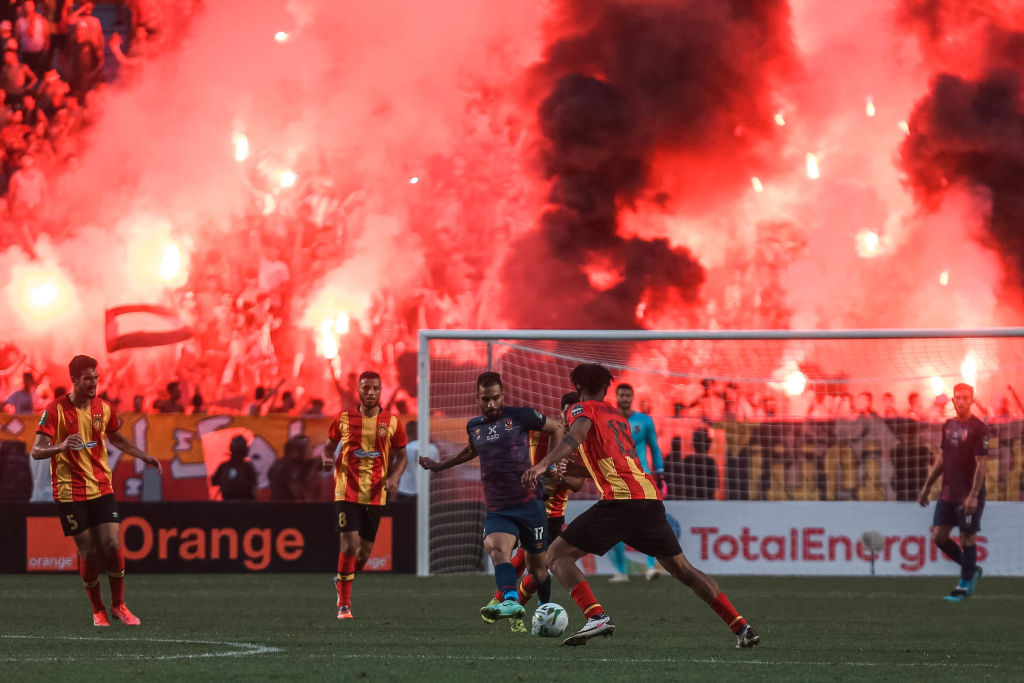African Football League in spotlight as legal row escalates over £332m media contract

A legal dispute between African football federation CAF and its biggest rights holder has raised questions about its new African Football League and its relationship with Fifa.
It took just over 24 hours for the European Super League to collapse under the weight of its own hubris and half-baked concept when it was revealed to a stunned football world in April 2021.
Africa’s version, announced in August last year and heralded as a means of bridging the gap with wealthier regions, has already lasted longer but there are growing concerns that it is also headed for the scrapheap before a ball has been kicked.
On Saturday in Cairo, the draw for the inaugural African Football League was made. Ironically, the Confederation of African Football (CAF) dropped the word “Super” from the name to avoid negative associations with the failed European incarnation.
But while the draw took place, a legal row was escalating that threatens the future of a competition that is due to start next month but already appears to be on a rocky footing.
The dispute, between CAF and beIN Media Group, has also raised serious questions about the financial sustainability of the Confederation, its main competitions – the Africa Cup of Nations (Afcon) and CAF Champions League – and the role in all of this of Fifa.
The world governing body is officially a partner of CAF in organising the African Football League, the latest sign of its increasing influence on the continent.
Last Friday lawyers acting for CAF informed beIN that it was unilaterally terminating a $415m (£332m) contract between the parties that was due to run until 2028.
It followed an extended period of wrangling over rebates that the Qatar-based broadcaster believed it was owed due to disruption caused by Covid-19 pandemic and last-minute decisions to move the last two Afcons. But perhaps the biggest issue is the African Football League.
The establishment of a new top-tier tournament for the best clubs in Africa naturally diminishes the standing of the CAF Champions League, which currently holds that title, and therefore the value of beIN’s rights package.
But because CAF has billed it as a joint venture with Fifa, it has argued that it does not fall under the scope of the existing deal. That has gone down as well in Doha as might be expected.
CAF’s termination means it does not currently have a broadcaster in the 38 territories covered by the beIN deal, which include Asia, France, the US, Canada and, crucially, throughout North Africa.
As a result, fans of many of the teams involved in the current CAF Champions League campaign, this week’s Afcon qualifiers and the finals themselves, due to take place in January in the Ivory Coast, have been left in the dark.

It could also have some serious financial implications. CAF announced a $15.7m (£12.6m) loss for the last financial year, and that was before it torpedoed the deal with beIN, believed to have been its biggest single commercial contract.
As yet it has not announced a new broadcaster and declined to comment on a range of questions. And there may be more pain on the horizon.
Over the weekend, beIN CEO Yousef Al-Obaidly contacted CAF to raise his concerns. In a letter seen by City A.M., he wrote: “I must make clear to you that beIN does not accept this termination and will take all necessary legal steps to challenge and overturn it.”
It is understood that beIN is ready to sue. In a similar episode four years ago involving previous rights holder Lagardere Sports, CAF paid around $50m in an out-of-court settlement.
It all adds to the uncertainty around the African Football League. The new competition was expected to be underwritten by Saudi investment but that has evaporated, while the format has been shrunk from 24 teams to eight for its first season.
CAF and Fifa say it will expand to 24 clubs next year, though it remains unclear how that will be funded. Matches, which start on 20 October, will be streamed on the competition’s website.
In the meantime, questions swirl around the machinations of CAF and its relationship with Fifa. In his letter, beIN chief Al-Obaidly mentioned “significant concerns” that the contract termination “may have been taken without the necessary scrutiny and approvals required under CAF’s internal regulations”.
CAF and Fifa declined to comment. A CAF press conference today is expected to shed more light on the situation.
